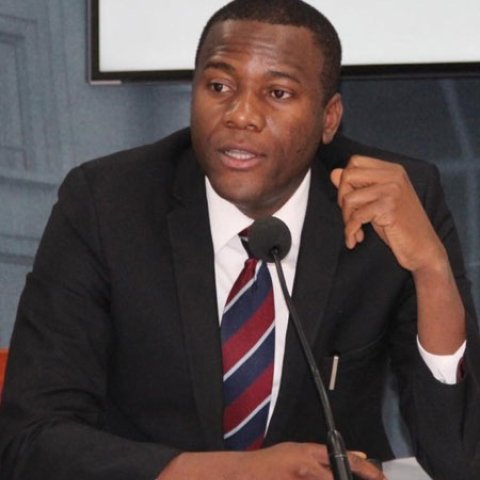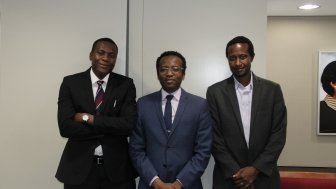Zuhumnan Dapel
Former Public Policy Fellow
Professional Affiliation
Fellow, Scottish Institute for Research in Economics
Expert Bio
Dapel Zuhumnan joined the Wilson Center in June 2017 as a Wilson Center-Center for Global Development joint visiting scholar under the Early Career Engagement Programme of the Scottish Institute for Research in Economics (SIRE) Scotland, UK. Dapel is to work on two CGD-SIRE funded projects: a paper, "Oil Intensity in Nigeria: In Search of Micro-Based Evidence of the 'Curse-Effect,'" and a poverty map for Nigeria.
Dapel was awarded a PhD in Economics by the University of Dundee, Scotland UK. He previously graduated from the University of Jos in Nigeria with a bachelor's and master's degree in Economics. Following the completion of his bachelor's degree, Dapel became a high school economics tutor for the One Year Mandatory National Youth Service in South-Western Nigeria. He further served on the academic staff at the Department of Economics University of Jos while he undertook a PhD program in Economics at the University of Dundee. He was also a graduate teaching assistant at Dundee starting in January 2013. His PhD research focused on poverty mobility, inequality, and oil in Nigeria. Previously, Dapel has worked as a part-time consultant with the Policy Associates, ICRISAT, and as an adjunct lecturer at Nigerian Television Authority TV College Jos, where he taught where he taught Media and the Economy (foundations of economic analysis) to 4th year students of TV Journalism.
Wilson Center Project
Oil Intensity in Nigeria: In Search of Micro-based Evidence of the 'Curse-Effect'
Project Summary
(1) To work on a paper, “Oil intensity in Nigeria: in search of micro-based evidence of the ‘curse-effect.’”
Existing cross-country empirical studies have documented the fact that, the abundance of (or dependence on) natural resources (e.g. oil) exerts a depressing effect on growth in real GDP per capita. We explore six sweeps of household surveys of Nigeria to test this hypothesis at a micro-level, using growth in household consumption expenditure as our LHS variable. To meet part of the data requirement for this exercise, since household surveys in Nigeria are not a panel, we follow Deaton (1985) to construct a pseudo panel from which our estimations and analysis are based. We investigate, (i) for evidence of the 'curse-effect' of oil and; (ii) the intervening role of governance, i.e how institutions attenuate, if at all, the extent of the 'curse-effect'. We investigate, (i) for an evidence of the 'curse-effect' of oil and; (ii) the intervening role of governance, i.e, how institution quality, if at all, attenuate, the extent of the 'curse-effect'.
(2) To produce a poverty map for Nigeria
In its fight against poverty, the Nigerian Government is currently implementing a cash transfer program. One of the major challenges being faced with this initiative is the documentation of the target group, i.e the neediest proportion of the population, the ‘ultra-poor’ or the ‘poorest of the poor. This aspect of the project intends to address this issue. Poverty map is essential in the fight against poverty in that, it enables the identification of the ‘ultra-poor’ for anti-poverty interventions.
Major Publications
- The Time Is Right for African Nations to Break the Resource Curse in US Foreign Policy Magazine
- African countries are behind on progress towards poverty reduction goals In The Conversation
-
Three Decades of Poverty Mobility in Nigeria: The Trapped, the Freed, and the Never Trapped.Center For Global Development
-
Will the Poor in Nigeria Escape Poverty in Their Lifetime? Center For Global Development
-
For the Poor, Falling Poverty Numbers Aren’t Always Good News. US Foreign Policy Magazine.
-
Growth Alone Won’t Help the Poor. US Foreign Policy Magazine.
-
Tracking Poverty in Nigeria. In U.S. News.
-
Poverty in Nigeria: Understanding and Bridging the Divide between North and South. Center For Global Development


